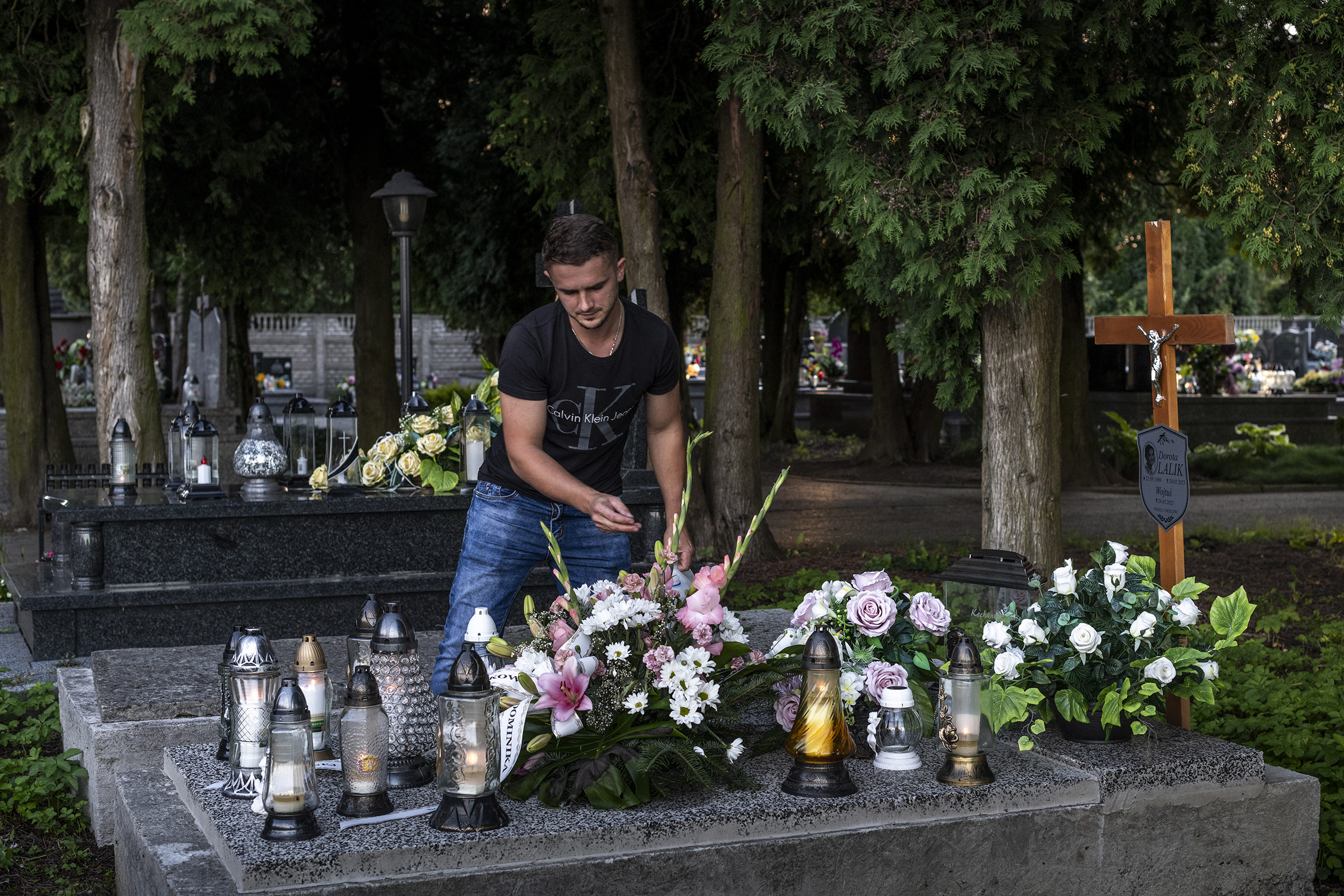This project was supported by the Pulitzer Center
Krzysztof Sowinski has cried every day since his wife Marta, who was five months pregnant, died of sepsis in 2022; he believes doctors put Marta’s life in danger by not giving them the option to terminate the pregnancy while the fetus’ heart was still beating. Janusz Kucharski also lost his partner Justyna to sepsis in the fifth month of a pregnancy. She left behind two boys.
It is likely, reproductive-rights advocates say, that these women would be alive if not for Poland's increasingly restrictive abortion laws. Abortion has been illegal in the country since 1993, but a 2020 ruling by Poland’s Constitutional Tribunal, which went into effect the next year, removed one of the exceptions to the law—fetal abnormalities—and imposed a near-total ban on abortion. Now women can terminate a pregnancy only if the women’s life or health is at risk (including mental health risks with a psychiatric diagnosis) or if there is reasonable suspicion that the pregnancy resulted from rape or incest.
Yet as examples from across the country indicate, what the law allows is not actually what is happening in practice. The consequences of the reproductive-rights rollback have been dire. Women who have abortions are not prosecuted under the law, but doctors and others who help women terminate pregnancies, up to the point of viability, may face up to three years in prison. If an abortion takes place beyond the point of viability, then the person who aided in the abortion may face up to eight years in prison. This creates what many consider a “chilling effect,” as doctors scared of running afoul of the law hesitate to take lifesaving steps for pregnant patients. “Patients are powerless and doctors are increasingly fearful,” says Professor Marzena Debska, a gynecologist at Debski Clinic in Warsaw.
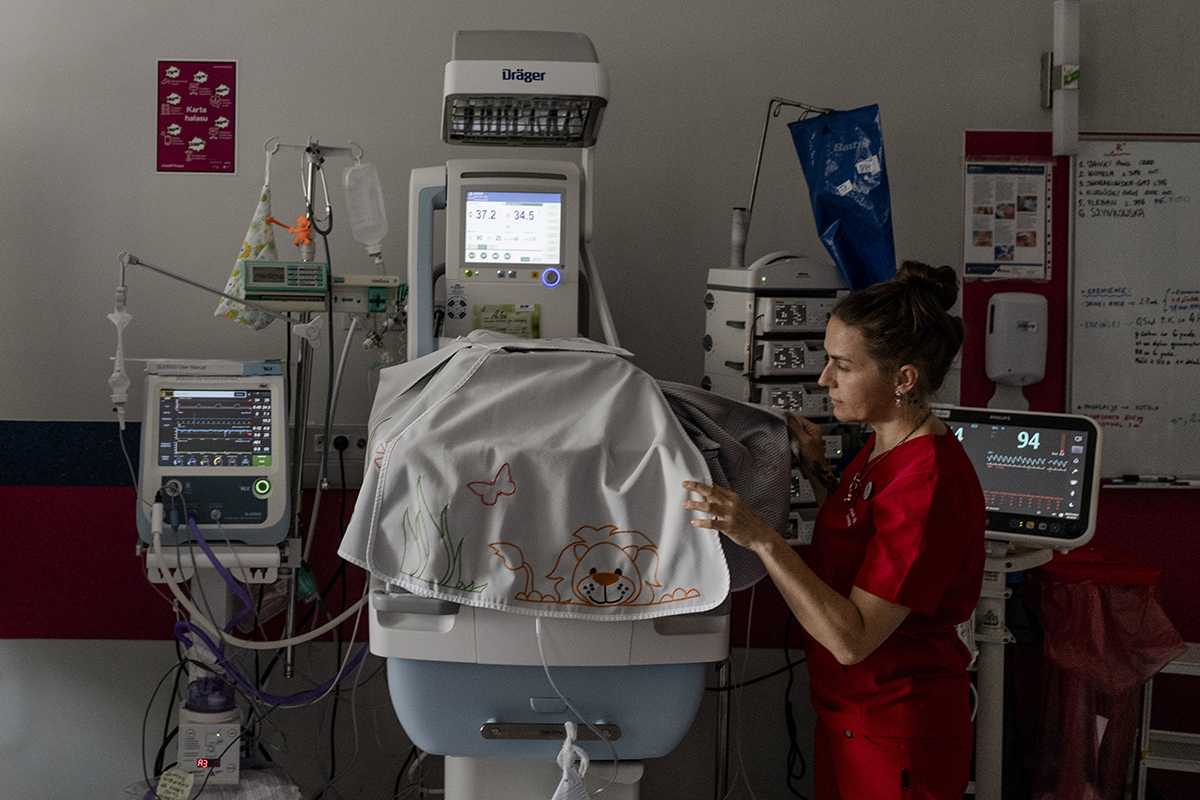
The concerns are similar to those raised in the U.S., where the 2022 overturning of Roe v. Wade allowed states to enact severe restrictions on abortion. Women in Texas, Tennessee, Idaho, and Oklahoma have sued their states, claiming a lack of clarity in the laws is preventing doctors from performing abortions on women with serious pregnancy complications. Over the last 30 years, 60 countries have liberalized abortion law, with only four rolling back its legality: the U.S., Nicaragua, El Salvador, and Poland.
Officially in 2020, there were seven maternal deaths in Poland. In 2021, there were nine. Such low figures have persisted for more than a decade, but experts say the data is unreliable. “Every year we estimate that there are almost three times as many deaths as appear in the statistics. If a patient dies in the intensive care unit, for example, and not in the gynecology and obstetrics department, nothing in the certificate will link her death to the pregnancy,” says Dr. Katarzyna Szamotulska, head of the epidemiology and biostatistics department at the Mother and Child Institute in Warsaw. (Poland’s Ministry of Health declined to answer multiple requests for comment about the reliability of the statistics.) With doctors reluctant to intervene, infant mortality rates have also risen, says Dr. Gizela Jagielska, the deputy director of the public hospital in Olesnica and a gynecologist who performs many of the few legal abortions that still take place in Poland.
More From TIME
Jagielska says the anti-abortion movement calls her a “baby killer” but she is undeterred. “I act according to the law, using the premise of saving a woman's life. I will continue to work no matter what, because who else will help these women?” she says. “I get threats, I am called the butcher of Olesnica. I'm not afraid. I only feel sorry for the couples who come to me for consultation. These are the most traumatic moments in their lives, and they have to hear that they are murderers.”
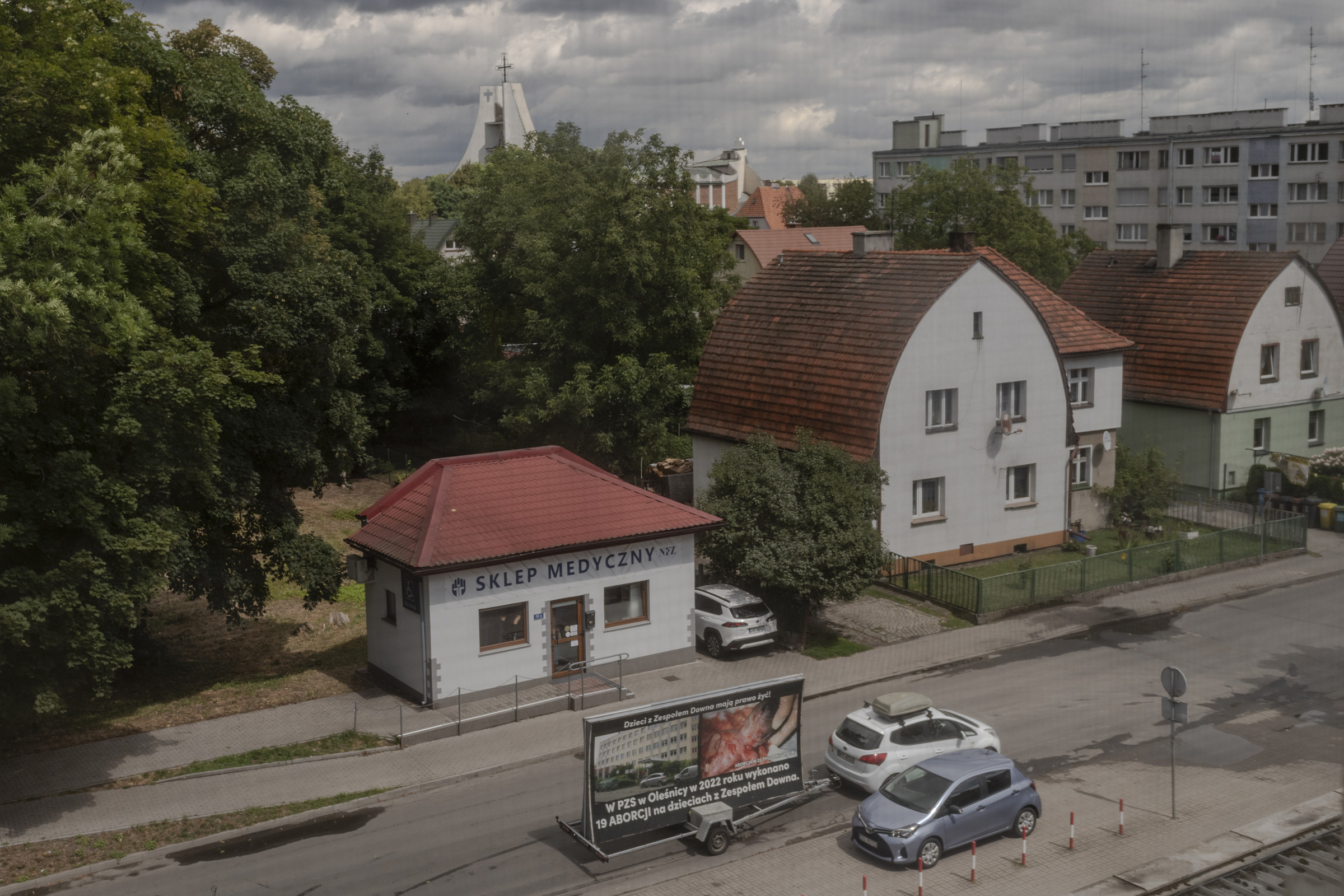
Because Poland’s ruling right-wing Law and Justice Party (PiS) supports the restrictions, many are looking to the Oct. 15 parliamentary elections to produce change. Others are looking to the courts. Attorney Jolanta Budzowska is representing families in criminal-negligence cases against doctors in relation to pregnant women who died and suffered harm in hospitals. She has also filed a complaint to the European Court of Human Rights against the Polish government on behalf of some of the families. “I think there are more such cases. And even more where women are survivors, but they have gone through a trauma and want to forget about it,” Budzowska says.
In 2019, even before the latest restrictions, the U.N. Committee Against Torture concluded that denying access to legal abortion in certain circumstances involves such intense physical and mental suffering as to constitute torture, and called on Poland to act. “A year ago, I helped another pregnant woman who was told by doctors to wait four days until the fetus died,” Budzowska says. “She got sepsis. She paid for it with depression.” In an opinion for the Office for Patients' Rights, Professor Krzysztof Preis of the Medical University of Gdansk wrote that “the action prolonging the patient's mental suffering was inhumane and cruel treatment, completely unjustified medically."
To grasp the human consequences of Poland’s abortion restrictions, TIME interviewed the families of pregnant women who arrived at hospital with second-trimester pregnancy complications and later died, as well as one woman who terminated her pregnancy and another who delivered a boy with severe health complications (the child died days later). Below are their stories.
Marta Sowinska
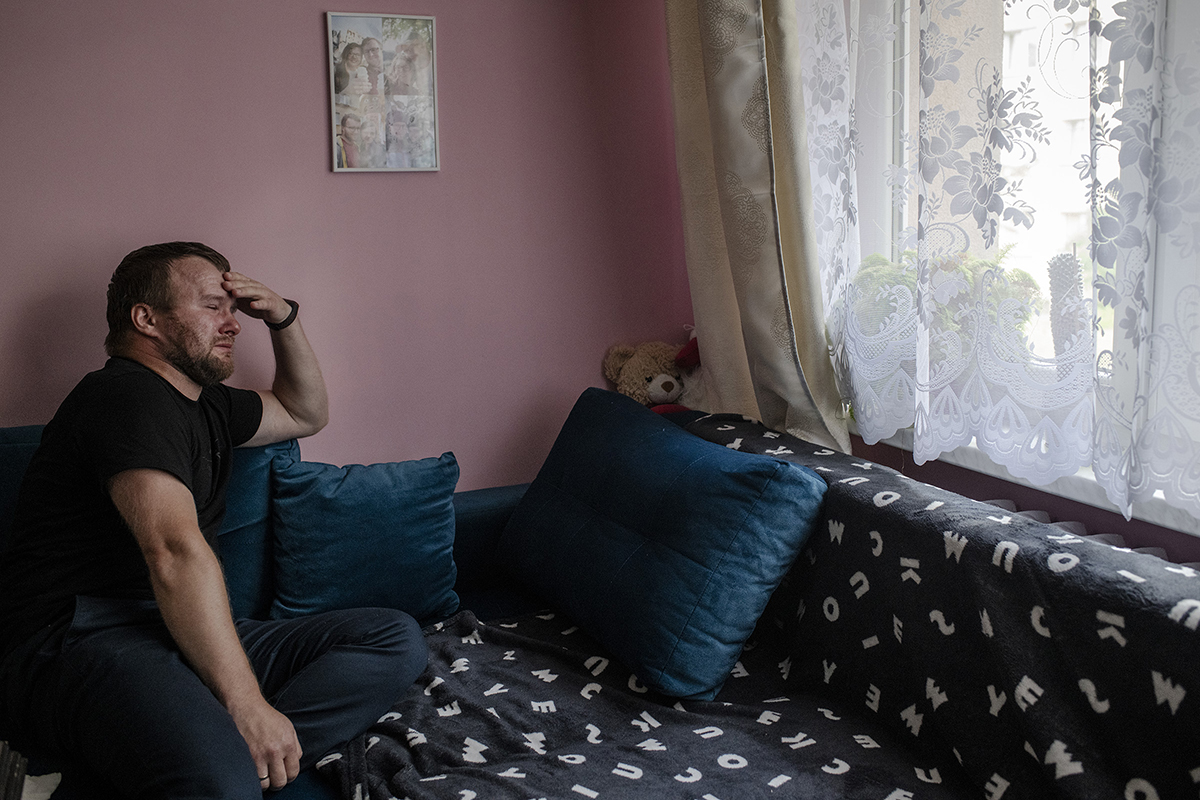
For more than five years, Marta, 36, and Krzysztof Sowinski, 40, tried everything to have a baby, including in vitro fertilization. Marta miscarried twice, in 2019 and 2020. On Dec. 31, 2021, she discovered she was pregnant again. “I loved our baby from the first line on the pregnancy test,” Krzysztof told TIME in July 2023, as he began to cry. On April 15, 2022, at 20 weeks, Marta started having contractions so Krzysztof drove her to the hospital in the southern Polish city of Katowice.
The next morning Marta did not feel well, but the fetus's heart was still beating so she hoped for the best, Krzysztof says. “Later she called me, shivering with cold: ‘Something is wrong with me. Maybe it's some inflammation.’” She developed a 100°F fever, leukocytosis, and a fast pulse. The doctor gave her hydroxyzine, an antihistamine with a sedative effect; paracetamol, a medication used to reduce fever; and an antibiotic, according to medical records obtained by Krzysztof and reviewed by TIME. At 1 a.m., Marta started bleeding from her birth canal. The fetus’s heart had stopped beating but the doctors moved her into the delivery room anyway. “I joined her at 3:40 a.m. and held her hand the whole time,” Krzysztof says, visibly shaking. Medical records note that Marta was “rude, abusive, and undermines the midwives’ decisions.”
Marta’s bloodwork from the hospital's laboratory time-stamped 3:51 a.m. showed a procalcitonin (PCT) test reading of 14.4—when a reading above 2 indicates a very high risk of sepsis. (The hospital told TIME in a statement that doctors only became aware of the PCT reading hours later; the hospital did not respond to inquiries as to why this delay occurred.) She delivered a stillborn boy at 5:19 a.m. “I said goodbye to the boy two hours later. We already knew that we would give him a funeral. I cried for hours in the waiting room, so Marta couldn’t hear me,” Krzysztof says.


The hospital wrote to TIME in a statement that "the patient wanted wholeheartedly to save the pregnancy and even after finding out that the fetus had no heartbeat she did not consent to the proposed medical action (inducing a miscarriage).” Krzysztof tells it differently: “She wanted a baby but didn't want to die for it. At first she did not consent, but after 40 minutes, she said OK. If they had explained to us 12 hours earlier that Marta’s life was in danger, and the pregnancy had to be terminated to save her, neither of us would have given it a second thought. Abortion was not a taboo subject for us. We trusted them. Who am I to check the doctor's every step?”
Marta’s condition continued to deteriorate into the morning. By mid-afternoon, doctors raised the prospect of removing her uterus.
But it was too late. “Marta fell into a coma after the procedure and doctors told me to go home, saying she could remain in this state for many days. A few hours later, I received a call that Marta had died,” Krzysztof says. (Medical records do not mention a coma.) “She was my only friend,” he adds. “The day she died, she said I could do whatever I want with our three embryos, frozen in a fertility clinic. Sometimes I think about surrogacy outside of Poland, but then I realize the whole point of having children is to raise them together. But maybe it is a way to make a part of her alive again?”
Justyna Szymura
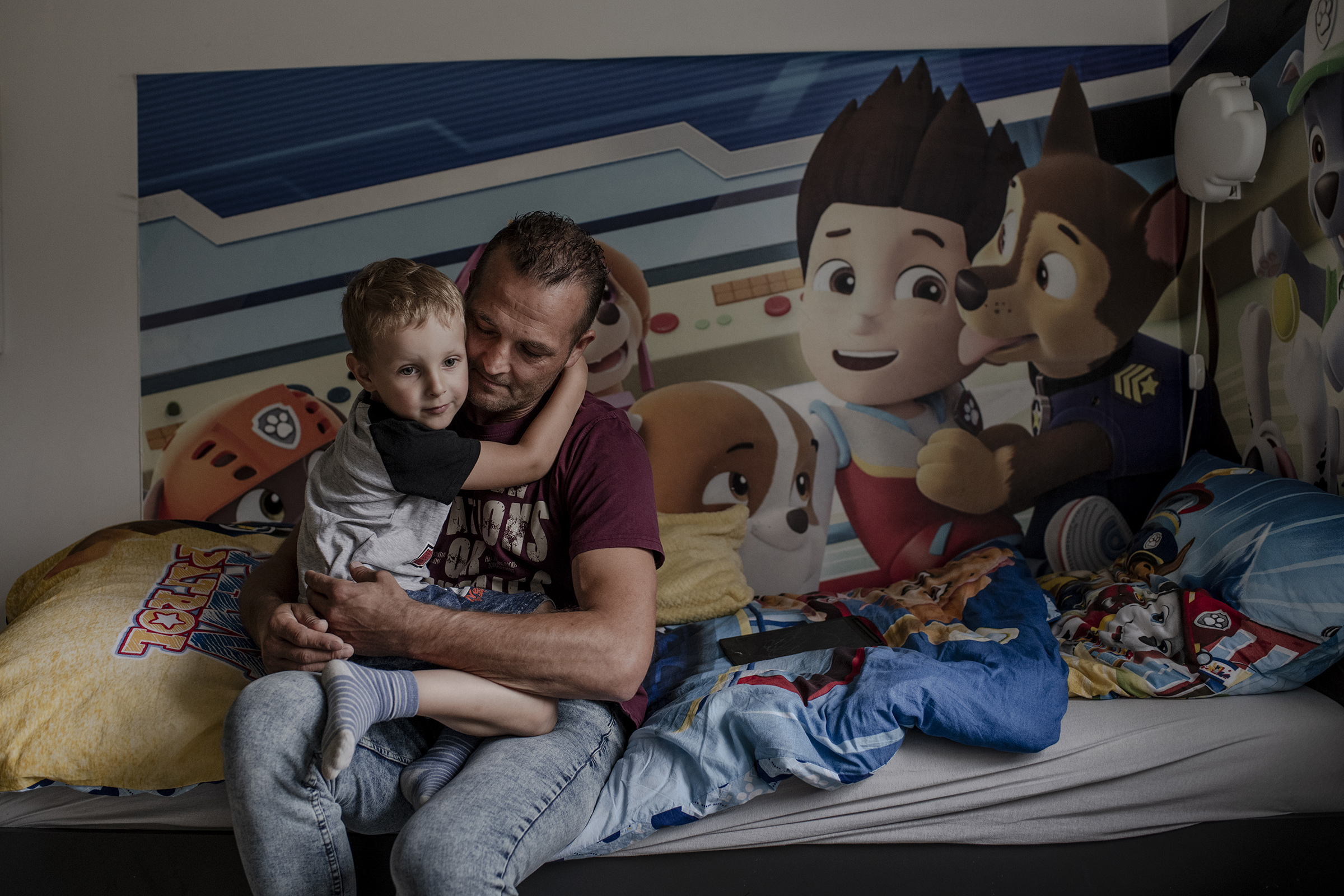
Before Justyna Szymura's death in December 2020 at age 34, Janusz Kucharski, 42, never cried. Now he tells their 4-year-old son, Dawid, that a man also has the right to grieve. He says he will not forgive the doctor who patted him on the back and told him that “nothing could be done” just after Justyna died.
While Justyna lay dying, the largest protests in the nation since the fall of the communist rule in 1989 filled the Polish streets. Following the Constitutional Court ruling in October 2020 to further restrict abortion access, more than 1,000 demonstrations were organized, with over 1 million people participating.
Justyna was 18 weeks pregnant when she started bleeding from her birth canal and went to the hospital in Wodzislaw Slaski on Dec. 9. Bloodwork results at 9:08 p.m. showed a high C-reactive protein (CRP) test, which indicated inflammation in her body, according to an opinion issued by Professor Miroslaw Wielgos, an expert witness for Poland’s Office for Patients' Rights, on Justyna’s care. Wieglos' opinion states that she was given an antibiotic and apparently left alone for 12 hours.
Professor Wielgos wrote in his opinion that the antibiotic could not have worked because “two weeks earlier, a culture from the genital tract showed the presence of a bacteria resistant to its action.” He also criticized the hospital’s decision to leave Justyna alone for 12 hours: "The consequence [of high leukocytosis and CRP] should be the monitoring of the effectiveness of the treatment by repeating the tests after a maximum of 4-6 hours.”
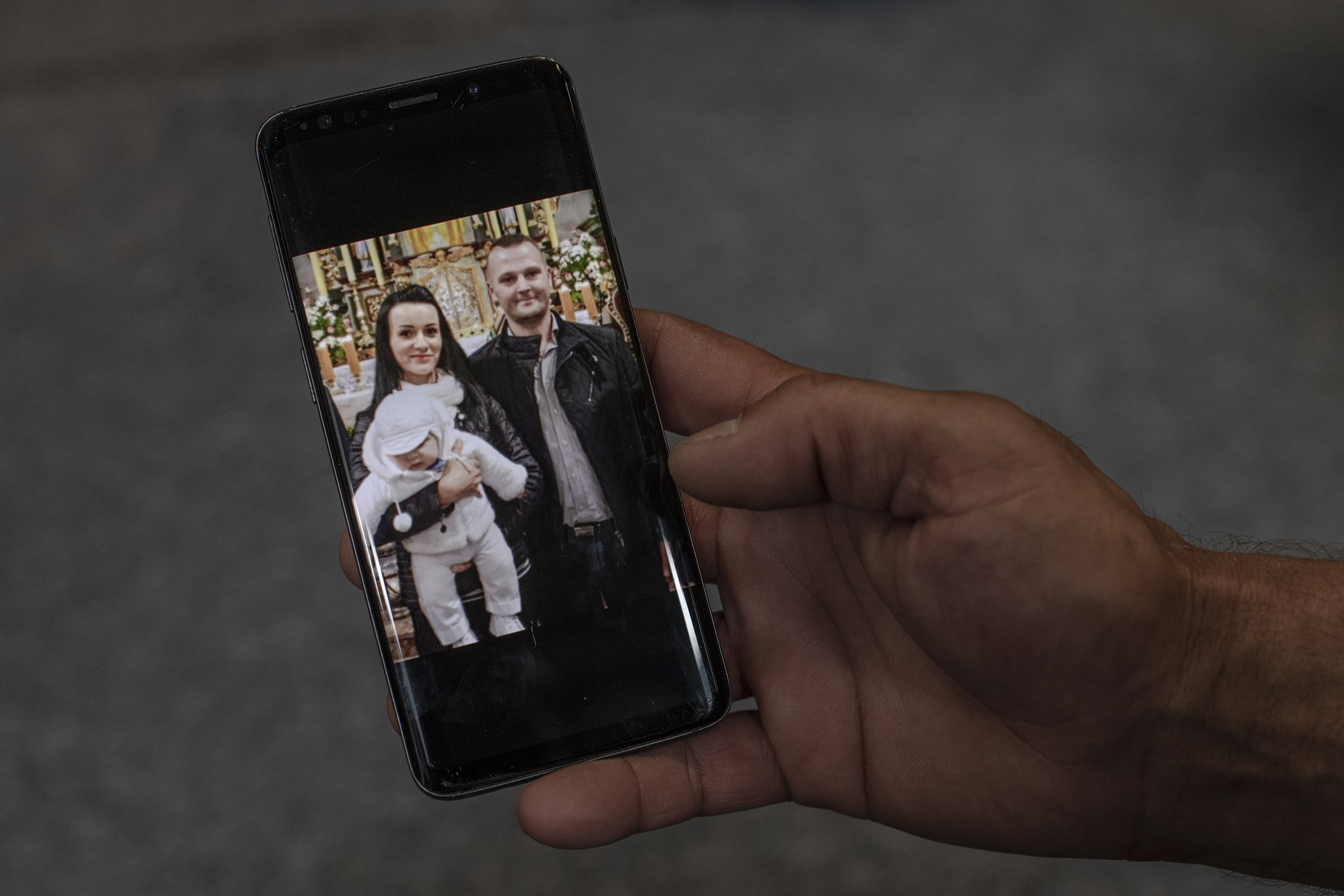
The next morning, Justyna texted Janusz: “I fainted in the bathroom. I'm vomiting since 5 a.m. and I have diarrhea.”
Doctors began inducing a miscarriage at 9:20 a.m on Dec. 10. "Perhaps it would have been undertaken several hours earlier, if the inflammatory parameters had been properly monitored," wrote Professor Wielgos. Laboratory test results soon showed a further increase in CRP, and there was a sharp increase in PCT as well as more vomiting, the appearance of chills and a fever, wrote Professor Wielgos in his opinion. He wrote that doctors needed to " immediately intensify action and proceed with instrumental emptying of the uterine cavity," but instead they proceeded with the induction of the miscarriage. By 11:30 a.m., no fetal heart function was detected. Justyna gave birth to a stillborn boy at 1:30 p.m. She named him Antoni. Due to persistent hemorrhage, a decision was made to surgically remove the uterus to which Justyna gave her consent. After being transferred to ICU, she died of sepsis the next day, at 1:30 p.m. on Dec. 11.
In the death certificate, the hospital wrote that the cause of death was "multiple organ failure." In an email statement on Sept. 22 to TIME, they said that the “patient was given due care by the medical staff adequate to her condition.” The hospital said in a subsequent statement that “the immediate cause of death was hemorrhagic shock with blood clotting abnormalities and associated multi-organ lesions. The hemorrhage, on the other hand, was caused by uterine cancer. Thus, the cause of death was not related to pregnancy, much less to childbirth, but to cancer.” According to Budzowska, who is representing Janusz and Dawid, an exam confirmed a placental site tumor, but Budzowska says, “Our main allegation is that the inflammation was poorly treated, and the patient was not supervised, which led to the development of sepsis and septic shock. If Szymura had survived and the placental site tumor had been detected, she would have undergone chemotherapy and had about an 85% chance of survival.”
According to Poland’s Central Statistical Office, not a single woman in the Silesian province, where Wodzislaw Slaski is located, died that year due to obstetric complications.
Izabela Sajbor
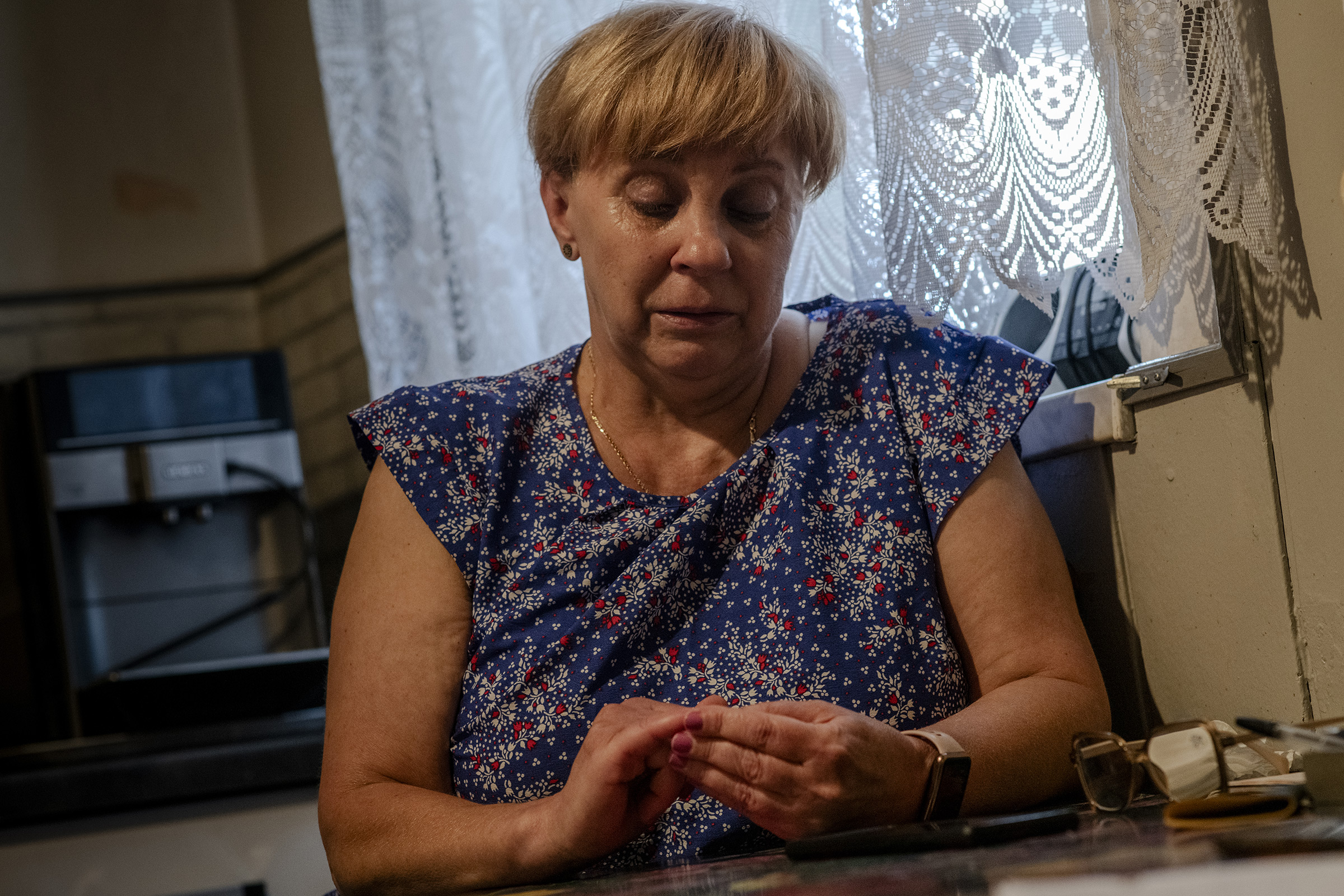
Izabela Sajbor, 30, was 22 weeks pregnant when her water broke in the early morning of Sept. 21, 2021, and she went to the Joannitas hospital in Pszczyna, in southern Poland.
By the evening of Sept. 21, Izabela was shaking from a fever. Bloodwork earlier in the day had indicated elevated CRP levels, according to medical records reviewed by TIME. “Thanks to super PiS they’ll wait until it’s dead. If not, great, I can expect sepsis!” Izabela messaged her mother Barbara Zientek, who lived in Cwiklice, a 15-minute drive from Pszczyna, but was unable to visit her daughter in hospital because of pandemic-related restrictions. Prenatal testing earlier in Izabela’s pregnancy indicated that the fetus might have Edwards syndrome—a congenital syndrome due to an extra copy of the 18th chromosome that is usually fatal; about 90% of babies with this condition do not survive the first year—though Skrobol says Izabela had shared this information only with her husband. Izabela never had amniocentesis to confirm a diagnosis.
"They can't do anything, because someone could think they did it on purpose,” she texted her mother. “My life is at risk. And I have to wait. Kisses mommy,” she also wrote. (TIME has reviewed the messages.)


Doctors had administered fentanyl and Diazepam, according to TIME’s review of the medical records. That evening, “Izabela was crying for help,” Skrobol says. “She was heard by other patients. ‘I have someone to live for!’ she yelled, thinking about her 8-year-old daughter, Maja." Izabela died at 7:35 a.m the next morning, less than 24 hours after she was admitted.
According to Budzowska, three doctors have been charged with endangering life and health, and one of them has been charged with causing death. All three doctors pleaded not guilty. The hospital in Pszczyna has not replied to multiple requests for comment.
Dorota Lalik
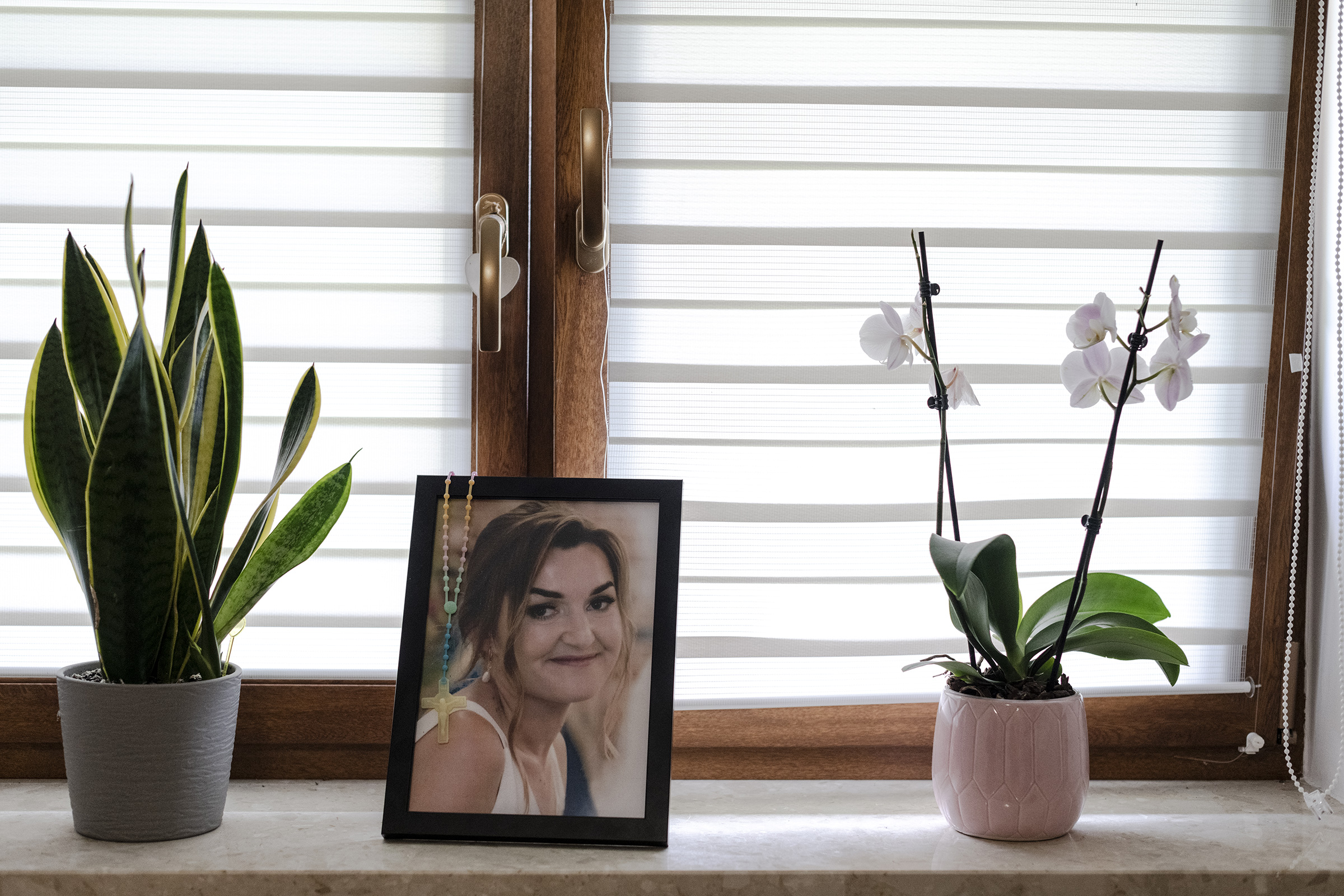
Dorota Lalik, 33, was 20 weeks pregnant when her water broke on May 20, 2023. She and her husband, Marcin Lalik, 27, were visiting family in Nowy Targ at the time, so he took her to the hospital named after Pope John Paul II in the southern Polish town. Doctors performed an ultrasound that showed the fetus still had a heartbeat.
Dorota had a headache on May 22, and bloodwork indicated her CRP was rising, according to Budzowska’s review of the medical documentation. (Budzowska, who is representing Dorota’s family, declined to share the documentation with TIME citing an ongoing investigation.) On the 23rd, she began vomiting, and her headache worsened. “No one informed us that the chances of saving our baby were close to zero, and sepsis was almost inevitable,” Marcin says.
“Usually women want to fight for their child. The most important thing is to honestly explain to them what their situation is. And observe them carefully, because the threat of sepsis can be, though not always, caught at an early stage,” said Dr. Krzysztof Preis, a gynecology consultant for the Ministry of Health for the Pomeranian region. Professor Preis said he would decide whether to terminate a pregnancy as soon as the first signs of an infection appeared, but for years, doctors in the region “hid behind the ‘conscience clause,” and declined to perform an abortion if it conflicted with their beliefs. “But for me,” he said, “to put a woman's life at risk contradicts the Bible."
Dorota had been jotting down a few words daily with a pencil in her prayer book, but by that night, she no longer had the strength to write. She spoke to her husband for the last time at 9 p.m. and told him she loved him. As a devout Catholic Dorota opposed abortion, but Marcin says it is hard to say what she would have chosen if given the option to terminate the pregnancy. “But for sure it is better to save one life than to lose two,” he tells TIME.
On May 24, doctors ordered a second ultrasound and found the fetus’ heart had stopped beating. Three hours later, and after discussion with a regional consultant, doctors decided to remove the fetus as well as Dorota’s uterus. Dorota died at 9:34 a.m. from sepsis despite 90 minutes of attempted resuscitation.

In June a patients’ rights ombudsman Bartlomiej Chmielowiec stated that "the investigation revealed a number of irregularities that occurred during the patient's stay in the hospital. No additional measures were taken in view of the rising CRP; adequate antibiotic therapy was not implemented in time and the patient was not offered induction of miscarriage on May 22 (the day after admission to the hospital) in view of the rising CRP. The supervision of the pregnant woman was not carried out in accordance with due diligence and in accordance with current medical knowledge." In August, Marek Wierzba, the head of the hospital, sent a letter expressing condolences and “deep regret for the death of Mrs. Lalik and her unborn child" to Marcin Lalik. "The management of the hospital in Nowy Targ apologizes for the violation of the rights of Mrs. Dorota Lalik to health services corresponding to the requirements of current medical knowledge, immediate provision of health services in case of danger to health and life, health services related to childbirth, health services provided with due diligence and to information about her health condition," Director Wierzba wrote.
"The death of a pregnant patient is a huge tragedy not only for the relatives of the deceased or the public, but also for the management and staff of the Hospital," the hospital said in a statement to TIME. "The patient was kept informed of her and the baby's condition. Both the patient and the family received support from a psychologist.
“To the best of our knowledge, neither in 2005 nor thereafter has there been any official declaration from the hospital that pregnancy terminations will not be performed at our facility. We have not reached any document or record that confirms this. The same goes for invoking the conscience clause. We are committed to ensuring that a similar situation does not occur again."
The hospital then outlined steps it had taken to ensure "a similar situation does not occur again," including someone to restructure the gynecology-obstetrics department and conducting training sessions. "Out of respect for the family and relatives of the deceased, as well as the applicable laws (confidentiality of medical records), the Hospital Director maintains his position and will not comment on the entire case until it is clarified by the relevant authorities."
Joanna
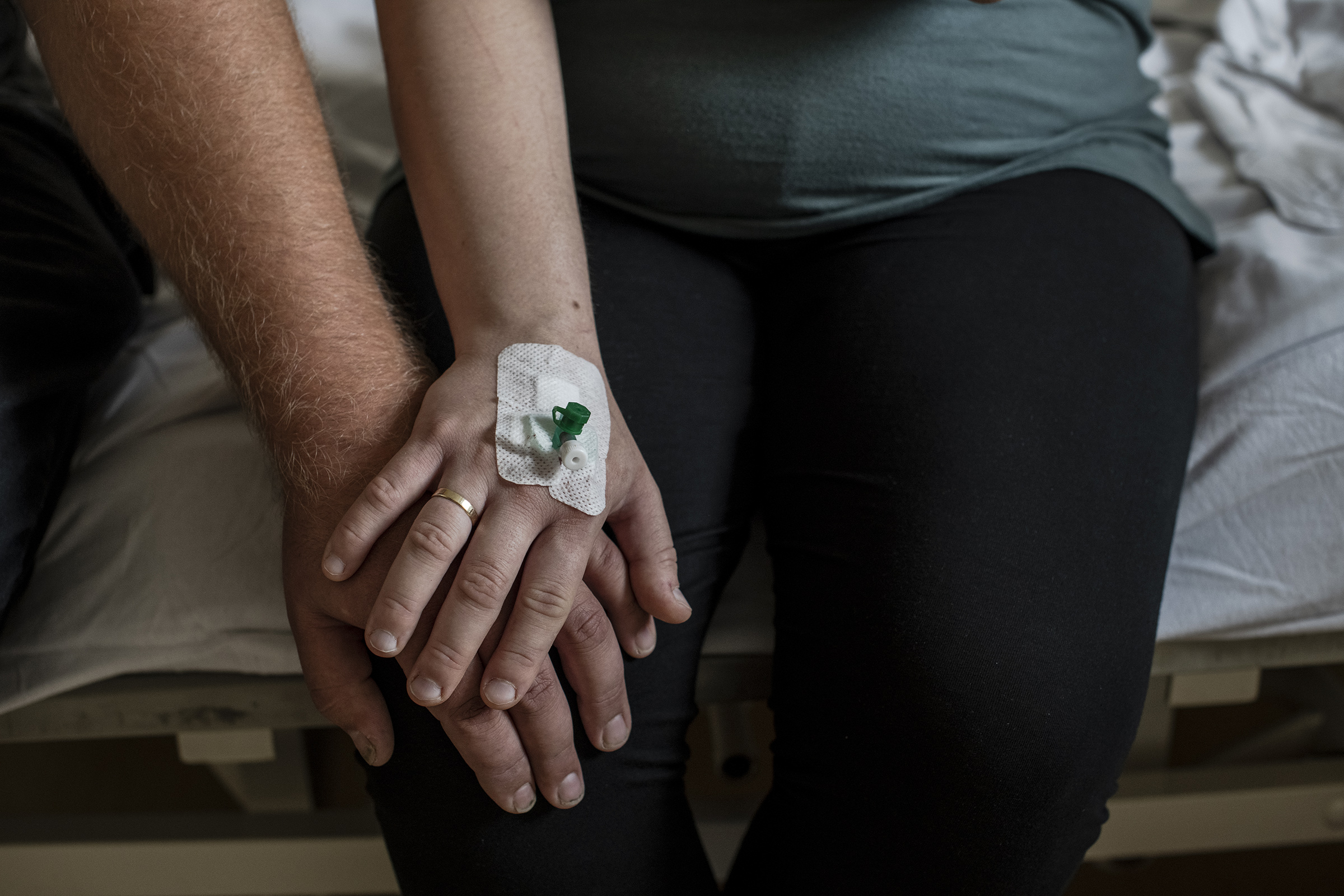
Joanna and Marek, 26 and 32, learned in May 2023, about four months into Joanna’s pregnancy, that the fetus had a diaphragmatic hernia, a birth defect in which there is an opening in the diaphragm that allows abdominal organs to move into the chest. (TIME is using pseudonyms for Joanna and Marek because of privacy concerns.) They consulted a doctor who told them the child had about a 50-50 chance of surviving birth. “The doctor was not sure if he would have legs and could be missing other organs,” Marek told TIME from Olesnica hospital in August. The doctor told them he could operate to move the organs to the right place and sew up the diaphragm once the child was born but it would be expensive. Given the political landscape, the couple was afraid to ask about terminating the pregnancy.
“I am chronically ill and I thought it was all my fault. I was told by a doctor to stop crying and deal with it,” Joanna says. “I was afraid that something would happen to me or the baby. At 21 weeks, I ordered pills online to induce an abortion at home, but the package came empty. I was going out of my mind and I ended up in the ER with a panic attack.”
It is then that Joanna and Marek decided to take action. The Foundation for Women and Family Planning (FEDERA), a Polish nonprofit that fights for reproductive rights, referred them to Dr. Jagielska. On Aug. 1, when Joanna was 27 weeks pregnant, they traveled 250 miles from their home in northern Poland to the hospital in Olesnica. A few hours after arriving, Dr. Jagielska administered a fetal intracardiac potassium chloride injection to the fetus’s heart to terminate the pregnancy. They decided not to see the baby afterward.
“The fetus had almost no lung tissue. It would have died immediately or a few hours after birth,” Jagielska recalls.
Maria
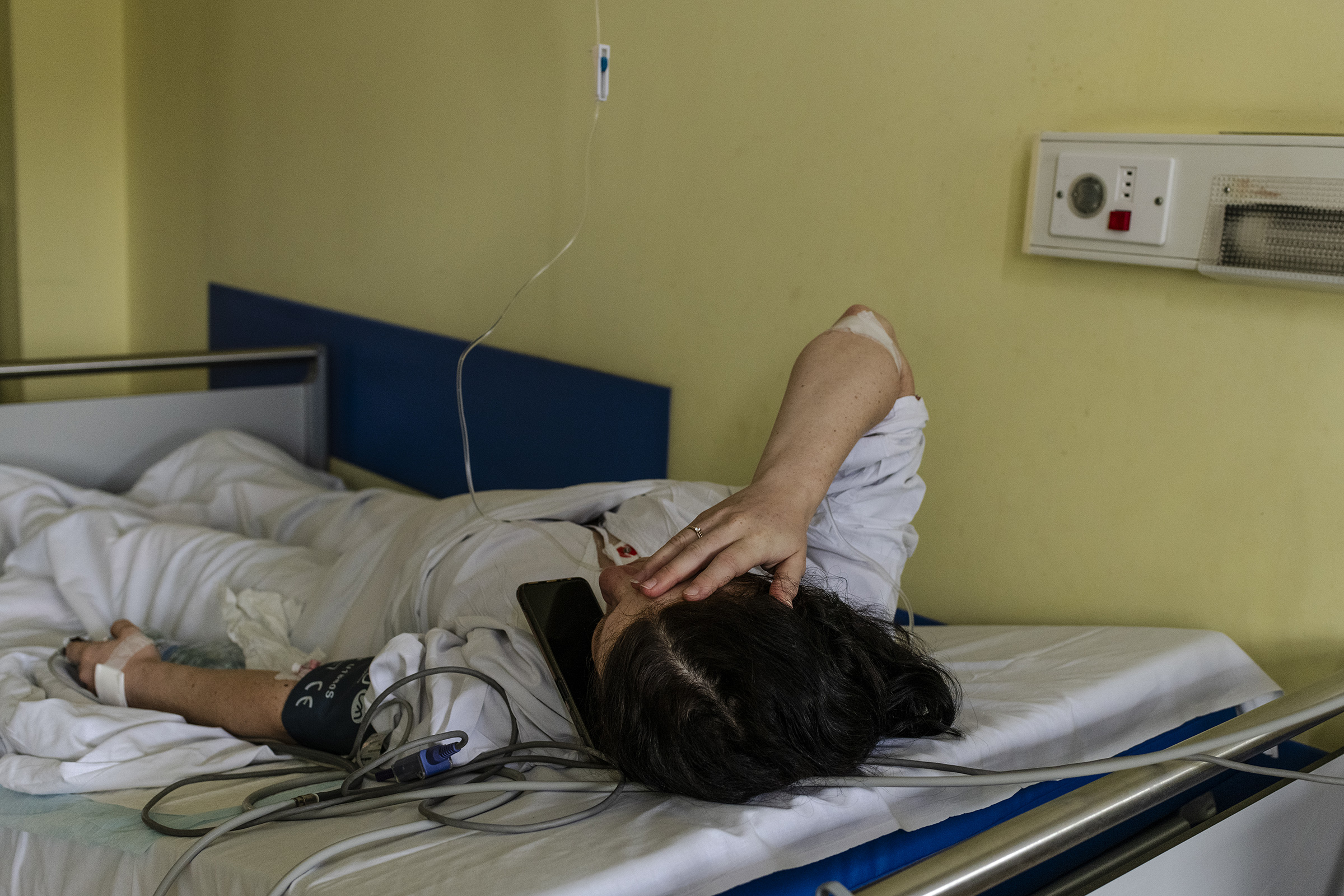
While Joanna and Marek were waiting for the abortion, in another room at Jagielska’s hospital in Olesnica, Maria, 25, a Ukrainian refugee who came to Poland following Russia’s full-scale invasion of her country, gave birth to a boy on Aug. 1, 2023. (TIME is using a pseudonym for privacy concerns.)
Test results earlier in Maria’s pregnancy indicated the baby had hydrocephalus, a build-up of fluid in the brain, which Dr. Jagielska says is likely because Maria had toxoplasmosis, a common infection caused by a parasite. But according to Jagielska, medical records from a previous physician did not mention any treatment. “How can you not notice that there is water instead of a brain?” asks Jagielska. “Unfortunately such things are on the rise. A few days ago I had a patient with a fetus missing half of the heart. These doctors just don't want to take responsibility for what happens next.”
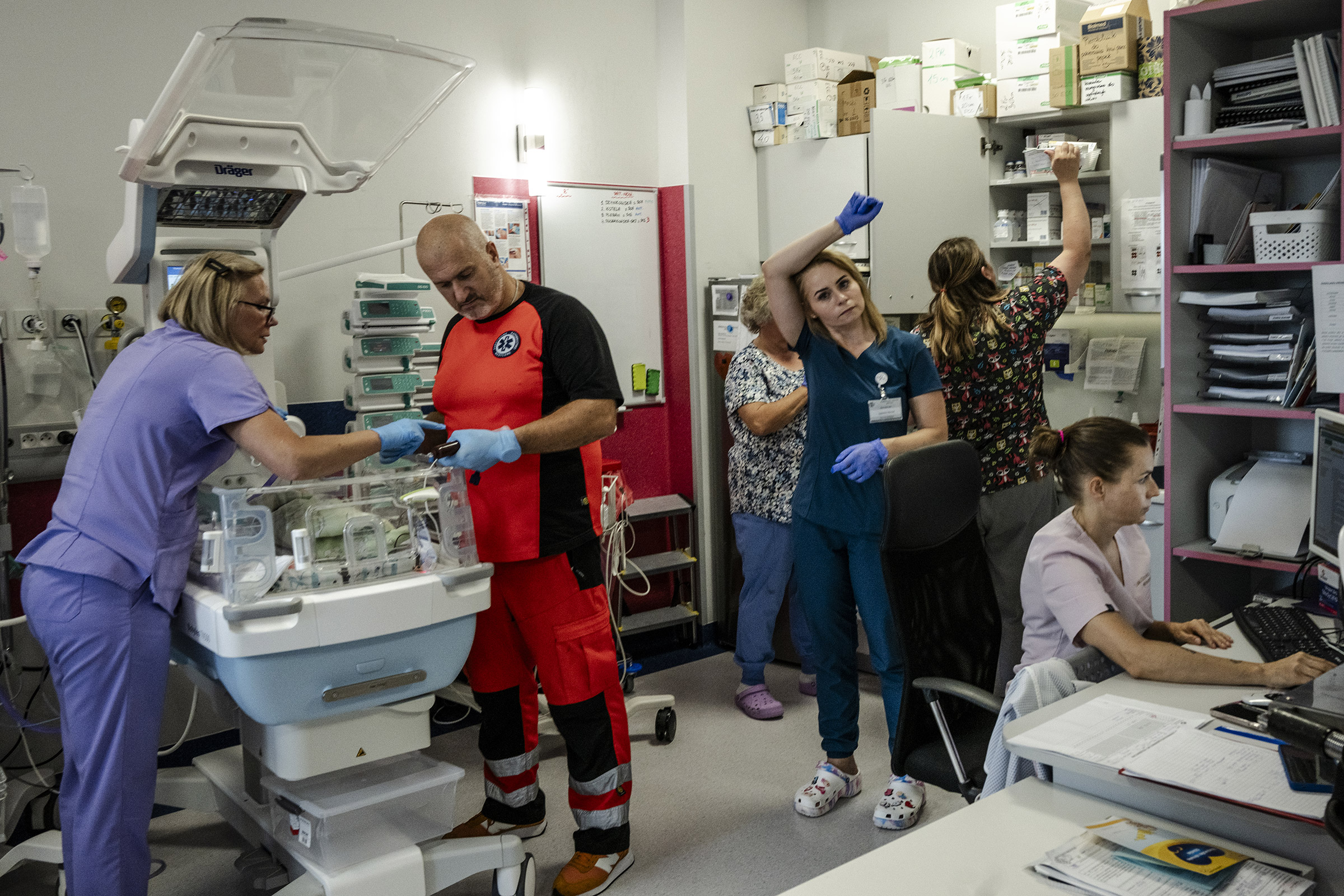
Dr. Jagielska, along with 11 other doctors, paramedics, and nurses tried to save Maria's son who, after several hours, was taken to a specialized hospital in Wroclaw, in southwestern Poland. Maria was in shock and, due to the language barrier, barely understood what was happening. A month later, by the decision of a neonatology consultant in the Lower Silesia region, the baby’s life support was switched off. “I don't know how I'd feel if I knew about the malformations from the beginning,” Maria told TIME in Olesnica hospital the day she gave birth on Aug. 1, “but I would like to have been given a choice.”—With reporting by Kasia Strek
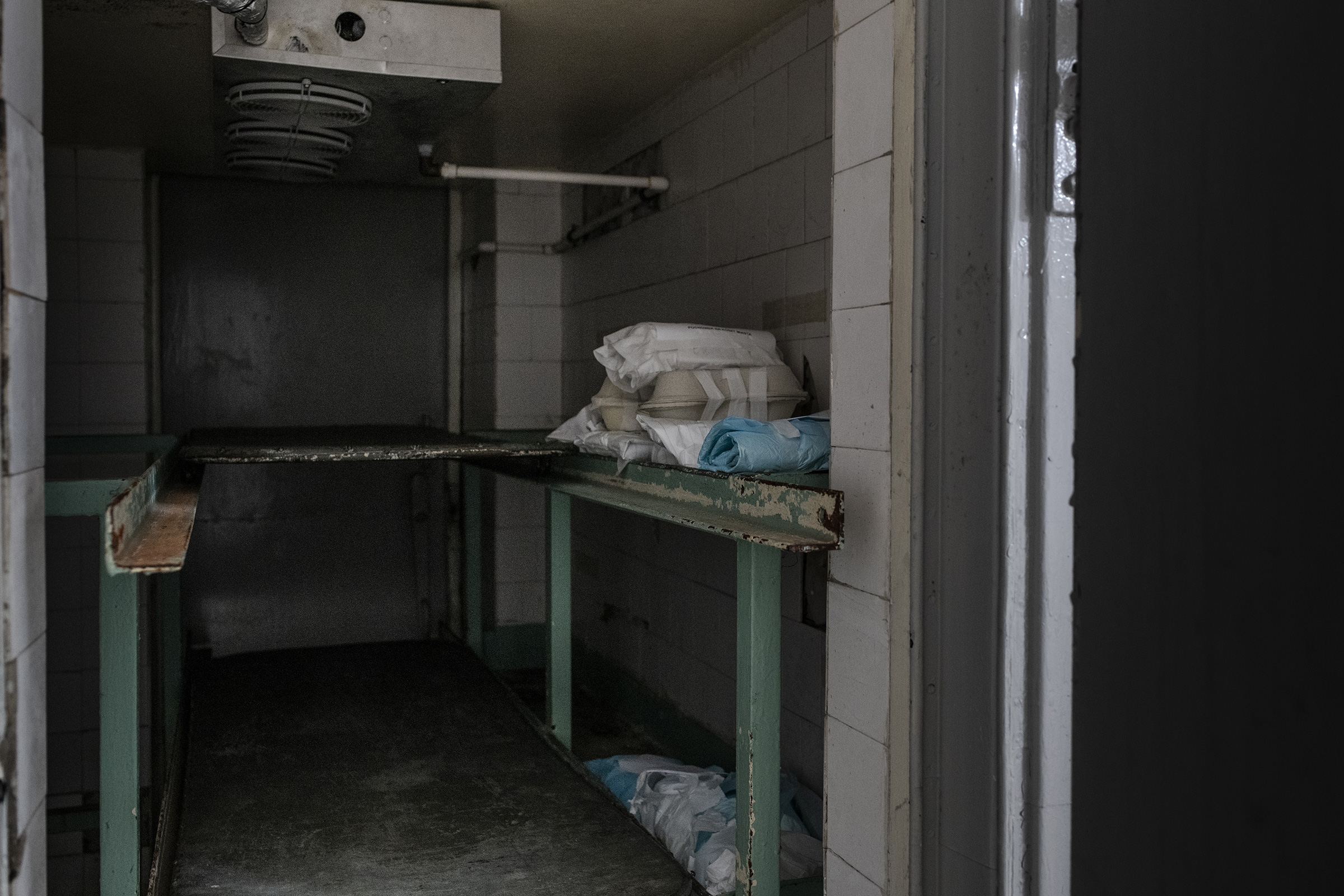
More Must-Reads from TIME
- Donald Trump Is TIME's 2024 Person of the Year
- Why We Chose Trump as Person of the Year
- Is Intermittent Fasting Good or Bad for You?
- The 100 Must-Read Books of 2024
- The 20 Best Christmas TV Episodes
- Column: If Optimism Feels Ridiculous Now, Try Hope
- The Future of Climate Action Is Trade Policy
- Merle Bombardieri Is Helping People Make the Baby Decision
Contact us at letters@time.com
